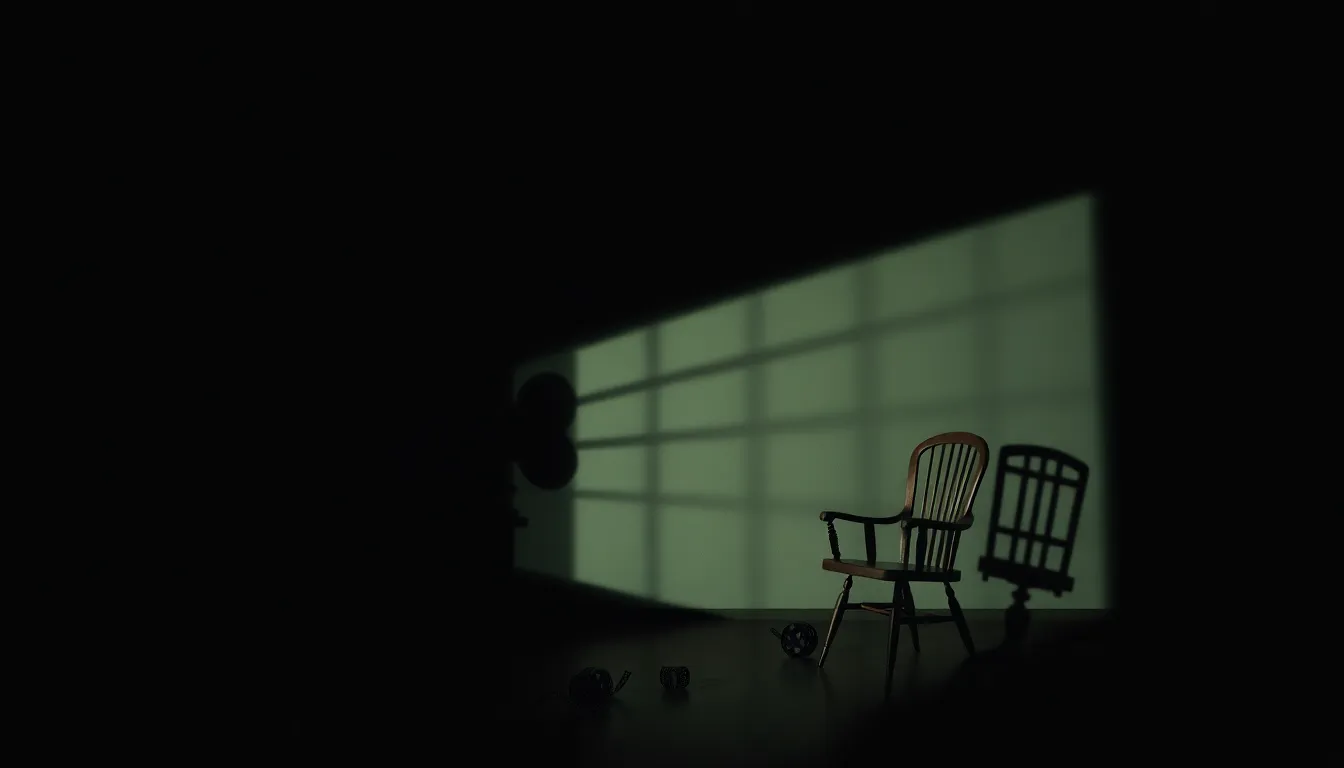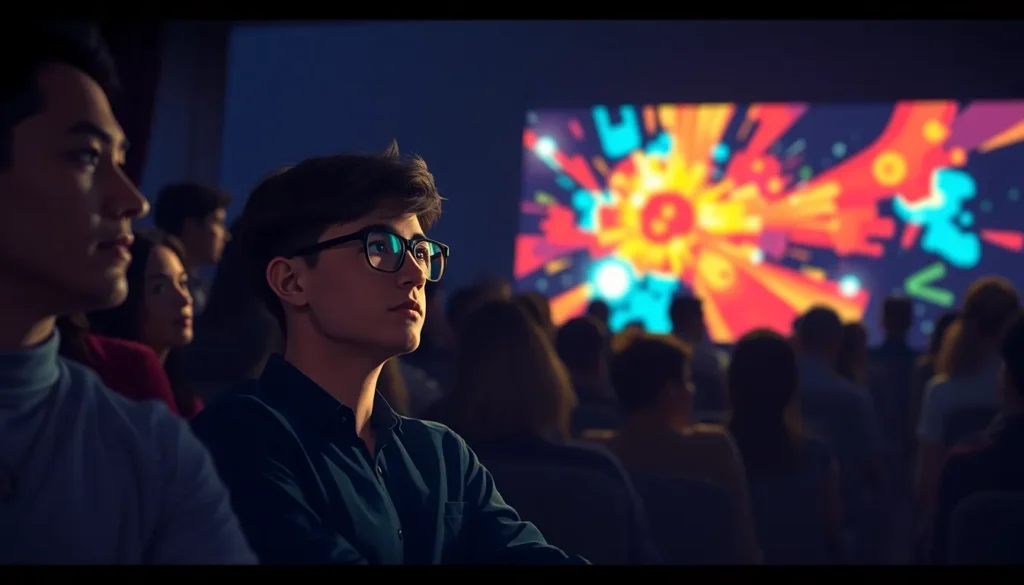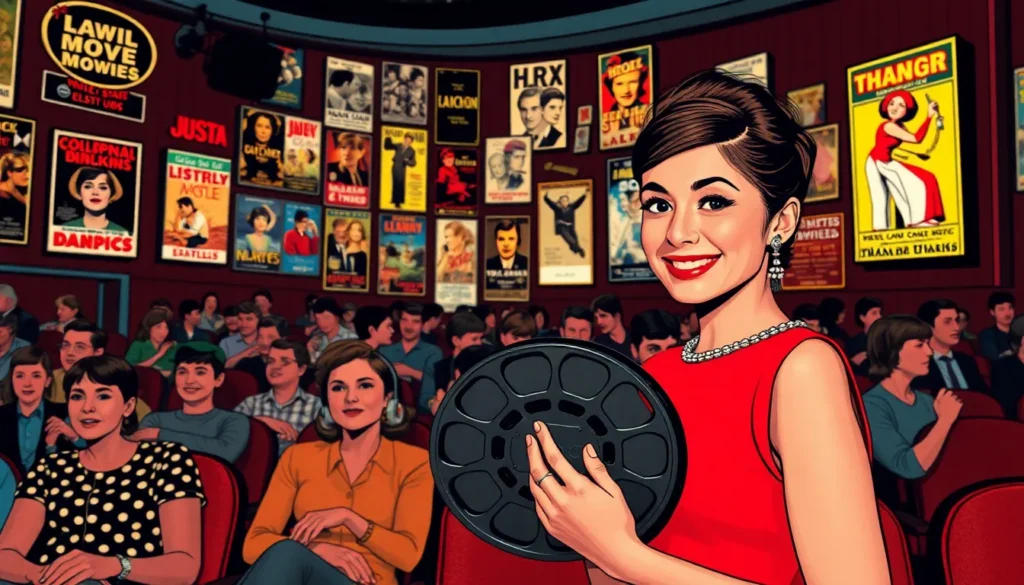Some movies are like a rollercoaster ride for the brain—thrilling, unpredictable, and a little nauseating. They twist plots, bend reality, and leave viewers questioning not just the film but their own sanity. If you’ve ever walked out of a theater feeling like you just solved a Rubik’s Cube blindfolded, you know exactly what we mean.
These mind-bending films challenge perceptions and make audiences rethink every twist and turn. They’re the cinematic equivalent of a mental workout, and who doesn’t love flexing those brain muscles? From psychological thrillers to surreal dramas, these movies ensure that your popcorn isn’t the only thing popping—your mind will be too. Get ready to dive into a world where nothing is as it seems, and the only certainty is uncertainty.
Movies That Mess With Your Head
Mind-bending movies captivate audiences by twisting realities and challenging perceptions. These films often blur the lines between fiction and reality, leaving viewers in a state of confusion. Psychological thrillers like Fight Club and Memento create plots that unravel as viewers piece together fragmented narratives.
Surreal dramas, such as Eraserhead and Mulholland Drive, deliver unpredictable experiences through abstract storytelling that defies conventional logic. Expect characters to experience disorientation, creating an unsettling atmosphere where motives remain unclear.
This genre utilizes clever plot devices to prompt active engagement. Reality becomes questionable, and each scene invites scrutiny. Audiences are pushed to reassess their understanding as the filmmakers manipulate time, memory, and perception.
Films like Inception and The Sixth Sense challenge viewers to look beyond the surface, often revealing shocking twists that redefine the entire story. An intricate web of narrative layers invites speculation, keeping viewers on the edge of their seats.
Disturbing themes also recur throughout these movies. Dark elements exploit psychological fears, enhancing the emotional impact. Characters typically face internal struggles, bringing complexity to their motivations and dilemmas.
Ultimately, mind-bending movies provide thrilling escapism while stimulating critical thinking. Each film can become an intricate puzzle, inviting multiple interpretations. As viewers navigate these narratives, they experience a blend of intrigue and uncertainty, reinforcing the mind’s role in comprehending storylines.
Psychological Thrillers
Psychological thrillers engage viewers with intense explorations of the human mind. These films challenge perceptions and invite layered interpretations, often leaving audiences questioning reality.
Mind-Bending Plots
Mind-bending plots create complexity through non-linear storytelling and unexpected revelations. Fight Club reveals a protagonist’s dual identity, forcing viewers to reconstruct their understanding as events unfold. Memento uses backward chronology, compelling audiences to piece together clues while remembering key details. Such narrative structures enhance suspense and keep viewers engrossed. Twists in films like Shutter Island and The Prestige amplify the thrill, as each plot turn leads to startling realizations. These intricately woven stories offer an adrenaline rush, ensuring that audiences remain engaged from start to finish.
Unreliable Narrators

Unreliable narrators amplify tension by distorting the truth. Films like Gone Girl and The Usual Suspects showcase characters whose perspectives mislead the audience. These narrators draw viewers into a web of deception, making revelations particularly shocking. Their portrayals challenge assumptions and prompt deeper reflection on motives and perceptions. As narratives unfold, questions about loyalty and truth arise, keeping audiences captivated. The use of unreliable storytelling captures the essence of psychological thrillers by merging the character’s psyche with the unfolding drama, leading to multifaceted interpretations.
Science Fiction Films
Science fiction films challenge perceptions through imaginative plotlines and complex themes. They often create an intricate web of alternate realities and time travel confusion, heightening the mind-bending experience.
Alternate Realities
Alternate realities twist the fabric of existence, leading viewers into worlds that defy logic. Films like The Matrix present simulated environments where minds question their physical surroundings. Coherence showcases a dinner party disrupted by mysterious cosmic anomalies, creating multiple versions of characters. Audiences grapple with these surreal experiences as they sift through layers of reality. The inherent uncertainty engages their minds, prompting deeper contemplation of choices and consequences. Such narratives mirror real-life dilemmas, blurring lines between what is real and what is imagined.
Time Travel Confusion
Time travel often complicates narratives, creating disorientation for viewers. Movies like Primer and Predestination explore the paradoxes involved with changing past events. In Looper, characters confront their future selves, raising questions about identity and fate. Each twist manipulates time, making comprehension challenging as timelines intertwine and collide. Audiences must actively piece together events, recalibrating their understanding of cause and effect. This mechanism not only fosters confusion but also stimulates critical thinking about the implications of time travel. Through these complex narratives, filmmakers invite viewers to navigate intricate plots filled with unexpected connections.
Horror Movies
Horror movies often evoke intense reactions, employing various techniques to challenge viewers’ minds. These films blend fear with psychological elements, creating gripping narratives that linger long after the credits roll.
Psychological Horror Elements
Psychological horror films delve into characters’ fears, distorting their reality. Such films include Hereditary and The Babadook, where emotions amplify dread. Settings often exploit isolation and claustrophobia, enhancing the feeling of helplessness. Sound design plays a crucial role, with unsettling audio triggering anxiety. Themes of trauma and mental illness prominently feature, inviting viewers to empathize with characters’ struggles. Emotional manipulation leads to disorientation, leaving audiences questioning what is real. Through this blend, psychological horror movies dissect the human psyche, revealing hidden fears.
Twists That Leave You Questioning
Twists in horror movies often redefine the story arc, challenging expectations. Films like The Others and Shutter Island utilize major plot twists that shift perception. Such revelations force audiences to reconsider clues presented throughout the narrative. Unexpected endings stir confusion, prompting discussions about meaning. Viewers often find themselves dissecting each scene, searching for hints that foreshadow these twists. Shock value complements the unexpected, enhancing overall impact. Invariably, these surprises transform straightforward plots into intricate puzzles, making the viewing experience unforgettable.
Cult Classics
Cult classics often explore unconventional narrative styles and thought-provoking themes. These films push boundaries, prompting deep reflection and discussion among audiences.
A Deep Dive Into Iconic Films
Donnie Darko, The Room, and A Clockwork Orange stand as quintessential representatives of cult cinema. Cult audiences appreciate their uniqueness, often embracing the absurdity and the exploration of darker themes. Non-linear storytelling features heavily in Donnie Darko, leaving viewers wondering about time travel and fate. The Room captivates through its unconventional dialogue and production flaws, sparking conversations about what makes a film memorable. A Clockwork Orange challenges societal norms, prompting analysis of free will and morality. Fans dissect these films endlessly, uncovering layers of meaning and cultivating a sense of community.
The Impact on Pop Culture
Cult classics significantly influence pop culture, manifesting in references across various media. Memorable quotes from these films become ingrained in everyday language. Iconic scenes inspire parodies and recreations in television shows and other films. Merchandise related to cult classics thrives, showcasing characters and quotes that resonate with fans. Cult films foster dedicated fanbases that celebrate shared appreciation through conventions and online forums. These films challenge mainstream cinematic trends, ultimately leaving a lasting impact on storytelling and audience expectations.
Conclusion
Mind-bending movies leave a lasting impression that transcends the screen. They invite audiences to question their understanding of reality while navigating intricate plots filled with twists and turns. This genre not only entertains but also challenges viewers to engage intellectually and emotionally.
Whether through psychological thrillers, surreal dramas, or cult classics, these films create an immersive experience that lingers long after the credits roll. The unique storytelling techniques and profound themes encourage discussions and reflections that can reshape perceptions.
Ultimately, the allure of mind-bending cinema lies in its ability to provoke thought and evoke emotion, making it a captivating journey for those brave enough to take the ride.



